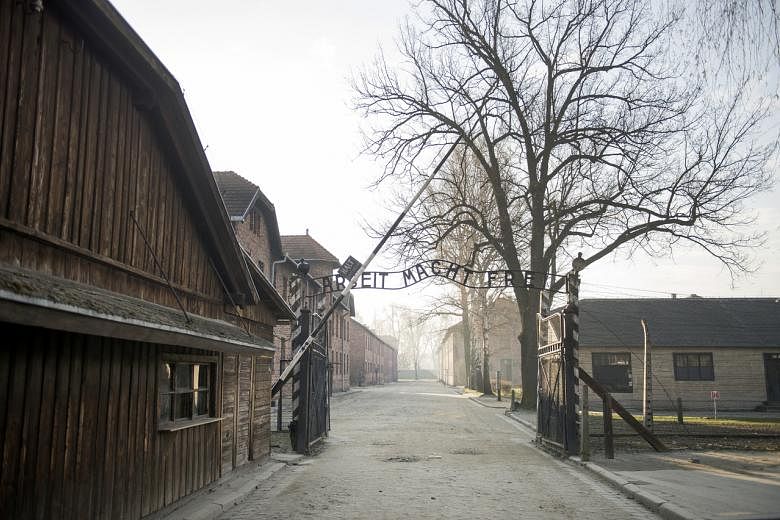UNITED NATIONS (REUTERS, AFP) - The United Nations General Assembly on Thursday (Jan 20) agreed on a definition of denial of the Holocaust, when the Nazis killed 6 million Jews during World War Two, and urged social media companies “to take active measures” to combat antisemitism.
“The General Assembly is sending a strong and unambiguous message against the denial or the distortion of these historical facts,” said Germany’s UN Ambassador Antje Leendertse. “Ignoring historical facts increases the risk that they will be repeated.”
The 193-member General Assembly adopted the resolution – drafted by Israel and Germany – without a vote. However, Iran disassociated itself.
Speaking to the General Assembly, Israel’s UN Ambassador Gilad Erdan made a veiled reference to Iran.
“Nations with seats in this hall openly deny the Holocaust, casting doubt on its occurrence and praising its perpetrators,”he said. “In fact, those that most blatantly deny that Jews suffered a genocide are the ones now threatening Jews with another genocide.”
Later, an Iranian diplomat, who Iran’s UN mission did not identify, accused Israel of exploiting “the sufferings of the Jewish people in the past as a cover for the crimes it has perpetrated” and questioning the resolution for “an awkward approach towards historical studies”.
Israel’s UN mission did not immediately respond to a request for comment on Iran’s statement to the General Assembly.
Israeli Foreign Minister Yair Lapid and his German counterpart, Ms Annalena Baerbock, in a joint statement welcomed the resolution, which they said served as proof that the international community "speaks with one voice" on the subject.
The General Assembly resolution spelled out that distortion and denial of the Holocaust refers to:
* Intentional efforts to excuse or minimise the impact of the Holocaust or its principal elements, including collaborators and allies of Nazi Germany.
* Gross minimisation of the number of the victims of the Holocaust in contradiction to reliable sources.
* Attempts to blame the Jews for causing their own genocide.
* Statements that cast the Holocaust as a positive historical event.
* Attempts to blur the responsibility for the establishment of concentration and death camps devised and operated by Nazi Germany by putting blame on other nations or ethnic groups.
It “urges member states and social media companies to take active measures to combat antisemitism and Holocaust denial or distortion by means of information and communications technologies and to facilitate reporting of such content”.
The General Assembly meeting on Thursday coincided with the 80th anniversary of the Wannsee Conference, when the Nazis met to coordinate the “final solution” - their plan to exterminate the Jews.
A resolution in 2005 designated Jan 27 as an international day of remembrance for the victims of the Holocaust.
Yad Vashem, the World Holocaust Remembrance Centre in Israel, welcomed the passage of the resolution.
"Holocaust distortion is so dangerous because, quite plainly, it misrepresents essential facts of history in order to legitimise past and present misdeeds," said its director Dani Dayan.
"The Holocaust carries substantial relevance for many vital contemporary issues. Denying and distorting the uniqueness and unprecedented aspects of events is not only detrimental to the memory of the Holocaust but to that of other atrocities and genocides as well," he added.

